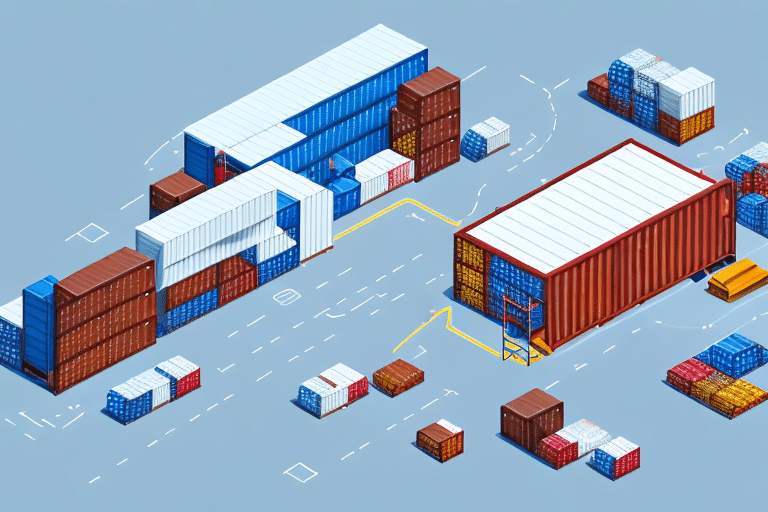Maximizing Efficiency in E-commerce Order Fulfillment
The rapid growth of the e-commerce industry has made order fulfillment processes increasingly complex. With a surge in order volumes, businesses must optimize efficiency and minimize costs to stay competitive. This article explores the significance of efficient order tracking, selecting the right third-party logistics (3PL) fulfillment center, and integrating shipping carrier solutions to streamline the entire fulfillment process.
Importance of Efficient E-commerce Order Tracking
Effective order tracking is crucial in the e-commerce fulfillment process. Customers expect timely updates about their orders, and businesses must meet these expectations to maintain satisfaction and loyalty. Efficient order tracking not only enhances customer experience but also helps businesses stay organized and reduce errors.
Benefits of Real-time Order Tracking
- Customer Satisfaction: Real-time updates allow customers to monitor their orders at any time, reducing anxiety and increasing trust.
- Operational Efficiency: Businesses can identify bottlenecks in the fulfillment process and implement improvements.
- Accurate Inventory Management: Real-time data ensures accurate inventory levels, preventing stockouts and overstocking.
Implementing advanced tracking software can provide these real-time updates and integrate seamlessly with e-commerce platforms, enhancing both customer experience and operational efficiency.
Selecting the Right 3PL Fulfillment Center
Outsourcing order fulfillment to a third-party logistics (3PL) provider can significantly streamline operations and reduce costs. However, choosing the right 3PL is vital for the success of your e-commerce business.
Key Considerations
- Experience and Expertise: Ensure the 3PL has a proven track record in e-commerce fulfillment and specializes in your product categories.
- Technology Integration: A robust Warehouse Management System (WMS) that integrates with your e-commerce platform is essential for real-time inventory tracking and order processing.
- Location: Proximity to your customer base can reduce shipping times and costs.
- Customer Service: Responsive and dedicated support can help quickly resolve any issues that arise.
Assessing these factors will help you select a 3PL partner that aligns with your business needs and can scale as your business grows.
Optimizing Shipping Carrier Solutions
The choice of shipping carriers plays a pivotal role in the fulfillment process. Selecting the right carrier can ensure timely and accurate deliveries while controlling costs.
Factors to Consider
- Delivery Speed: Depending on your business model, whether it's same-day delivery or standard shipping, choose a carrier that meets your delivery promises.
- Reliability: Partner with carriers known for their reliability to minimize delays and lost shipments.
- Cost: Compare shipping rates and negotiate discounts based on your shipping volume.
- Technology Integration: Carriers that offer seamless software integrations can simplify label printing, package tracking, and shipment management.
- Sustainability: With growing consumer preference for eco-friendly options, consider carriers with sustainable practices.
Researching and comparing different carriers based on these criteria can help you select the most suitable option for your business.
Integrating Order Tracking, Fulfillment, and Shipping Solutions
Integration of order tracking, fulfillment, and shipping solutions can significantly enhance operational efficiency and reduce errors. This holistic approach offers several benefits:
- Centralized Dashboard: Monitor the entire fulfillment process from a single platform, allowing for better oversight and management.
- Data-driven Insights: Access to comprehensive data enables informed decision-making and continuous process optimization.
- Seamless Inventory Management: A unified system helps maintain accurate inventory levels, preventing stock discrepancies.
According to a Forbes report, businesses that integrate their fulfillment processes experience a 20% increase in operational efficiency.
Overcoming Common E-commerce Fulfillment Challenges
E-commerce order fulfillment presents several challenges, including stock shortages, delayed shipments, and inaccurate tracking. Addressing these issues is essential for maintaining customer satisfaction and operational efficiency.
Strategies to Overcome Challenges
- Inventory Management Software: Utilize advanced software to maintain accurate inventory levels and forecast demand.
- Quality Control Processes: Implement strict quality control to reduce errors and returns.
- Carrier Tracking Integrations: Integrate carrier tracking systems to provide accurate shipment information.
- Outsourcing to a 3PL: Leveraging a 3PL can provide the expertise and resources needed to manage complex fulfillment processes effectively.
By implementing these strategies, businesses can mitigate common fulfillment challenges and enhance overall efficiency.
Reducing Shipping Costs and Maximizing Profit Margins
Shipping costs can significantly impact profit margins. Implementing strategies to reduce these costs can enhance profitability and allow for reinvestment in business growth.
Effective Cost-reduction Strategies
- Negotiate Carrier Rates: Leverage your shipping volume to negotiate better rates with carriers.
- Free Shipping Thresholds: Offer free shipping on orders above a certain amount to increase average order value and reduce shipping transactions.
- Flat-rate Shipping: Implement flat-rate shipping fees to simplify pricing structures for customers.
- Optimize Packaging: Use appropriately sized packaging to reduce weight and dimensional costs.
- Utilize a 3PL: Third-party logistics providers can often secure better shipping rates due to their volume discounts.
According to Statista, optimizing shipping strategies can lead to a reduction in shipping costs by up to 15%, directly impacting profit margins positively.
Leveraging Technology and Data Analytics for Continuous Improvement
Technology and data analytics play a critical role in enhancing e-commerce efficiency. From automated order processing to advanced data analysis, these tools provide valuable insights and streamline operations.
Key Technological Innovations
- Artificial Intelligence (AI): AI-powered chatbots improve customer service by providing instant support, while AI algorithms can analyze customer data for personalized recommendations.
- Data Analytics: Analyzing data from various sources helps businesses track performance metrics and identify areas for improvement.
- Automated Order Processing: Automation reduces manual errors and speeds up the fulfillment process.
- Inventory Management Systems: Advanced systems provide real-time visibility into inventory levels, aiding in accurate forecasting and replenishment.
Integrating these technologies can lead to a Harvard Business Review report highlighting that businesses leveraging data analytics see a 10-15% improvement in operational efficiency.
Best Practices for Managing Returns and Exchanges
Managing returns and exchanges effectively is essential for maintaining customer satisfaction and minimizing costs. Clear policies and streamlined processes can turn a potentially negative experience into a positive one for customers.
Implementing Effective Return Strategies
- Clear Return Policies: Establish and communicate transparent return policies to set customer expectations.
- Easy Return Portals: Provide user-friendly portals for customers to initiate returns or exchanges.
- Quality Control Measures: Implement checks to reduce the likelihood of defective products being shipped.
- Outsource Returns Management: Partnering with a 3PL can simplify the returns process and enhance efficiency.
According to Business.com, effective returns management can lead to a 30% increase in customer retention rates.
Case Studies: Successful E-commerce Fulfillment Strategies
Examining successful e-commerce businesses can provide valuable insights into effective order tracking, 3PL fulfillment, and shipping carrier solutions.
Amazon
Amazon has set industry standards with its extensive investment in logistics and fulfillment technology. Their advanced fulfillment centers and efficient shipping strategies ensure fast and reliable delivery, contributing to high customer satisfaction.
Zappos
Zappos has built its reputation on exceptional customer service, offering 24/7 support and free returns. Their commitment to customer experience demonstrates the importance of integrated fulfillment and customer-focused policies.
Studying these examples can help other businesses implement similar strategies to enhance their fulfillment processes and overall customer experience.
Conclusion
Optimizing e-commerce order fulfillment through efficient order tracking, selecting the right 3PL fulfillment center, and integrating shipping carrier solutions can significantly enhance business efficiency and customer satisfaction. By leveraging technology and data analytics, businesses can continuously improve their operations, reduce costs, and maximize profit margins. Implementing these strategies will position e-commerce businesses for long-term success in a competitive marketplace.






















